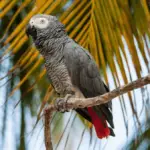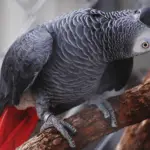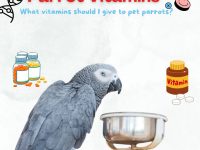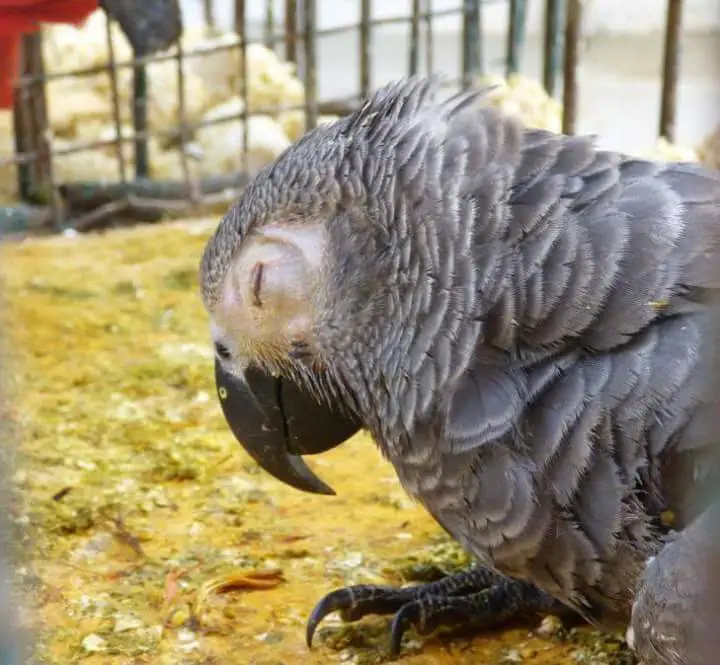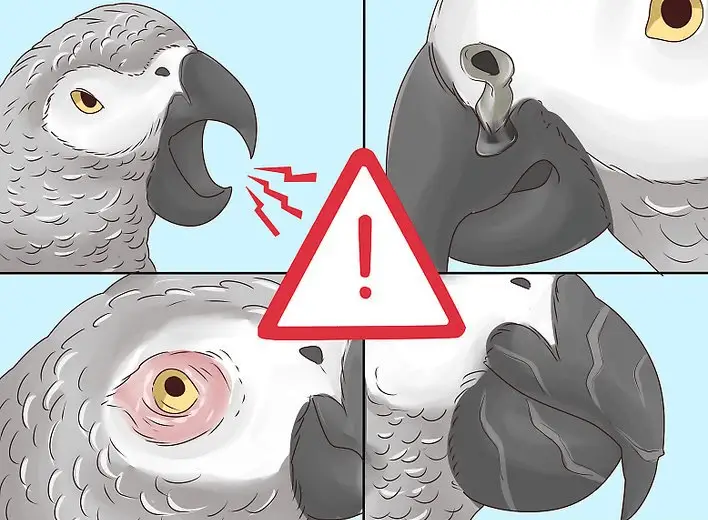parrot signs
10 signs to recognize a parrot sick
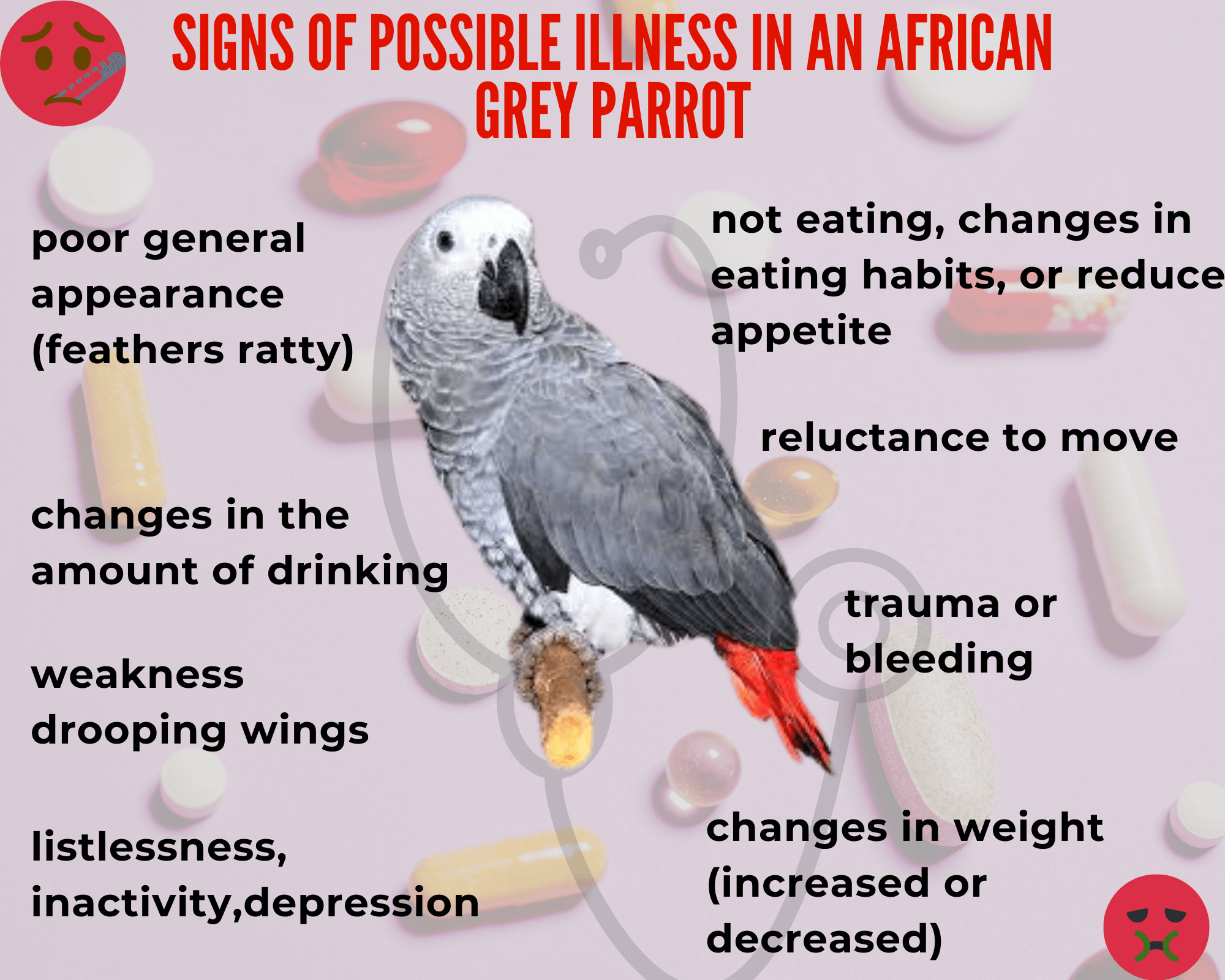
sick parrot symptoms
Signs of Possible Illness in an African Grey parrot, by their genetic background, tend to hide their weaknesses.so it’s very hard to determine Signs of Possible Illness in an African Grey parrot. But a perfectly normal behavior since predators are primarily interested in the weakest animals. Knowing how to recognize the symptoms of a disease allows you to identify weaknesses as soon as possible.
Time is a precious ally in detecting and treating disease. The earlier you intervene, the more you can reduce the effects of the pathology.
Before recognizing a behavior indicating a health problem, it is imperative to know how to recognize a parrot in a state of full health.
-
African grey parrot has gone quiet
-
Why has my parrot gone quiet
-
Parrot sick
-
Sick parrot treatment
-
Parrot sick symptoms
-
Parrot fever symptoms
-
Home remedies for sick parrot
-
Parrot diseases
-
What to feed a sick parrot
Signs of Possible Illness in an African Grey parrot
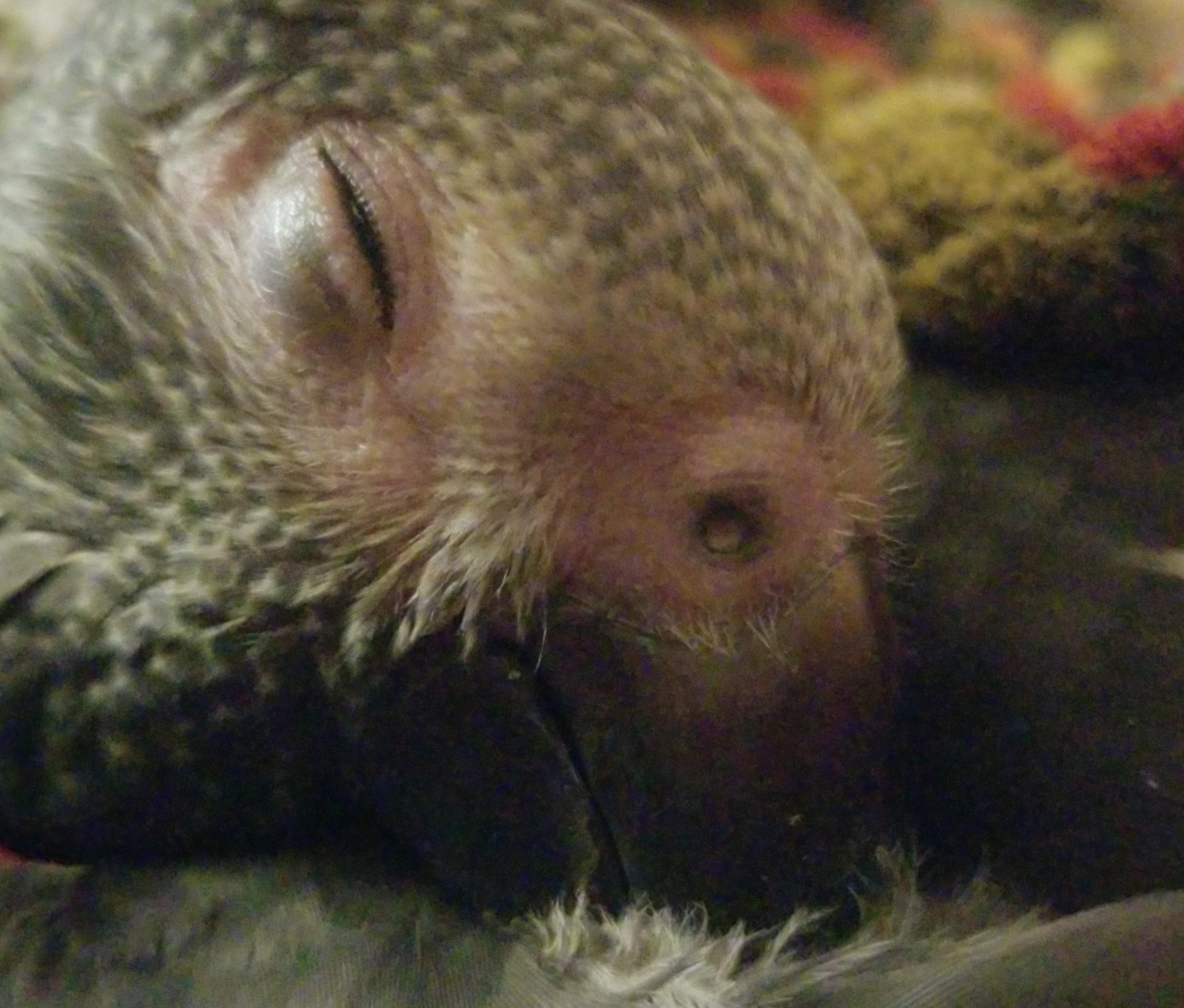
Signs of Possible Illness in an African Grey parrot
A Healthy Parrot
The overall attitude of an animal already says a lot about his health. If your parrot stands upright, the wings glued to the body at equal height, the eyelids open and the eyebright then it has a normal attitude. He must also have a good balance.
During stress or physical exertion, a healthy bird quickly finds habitual constants (heart, breathing, balance, the righteousness of the body, …).
Your bird looks around him, following your movements … This is a good sign since attention is an excellent marker of good health. His eyes are round and shiny.
A healthy parrot is dynamic: he moves, eats, and maintains his plumage regularly, observes, vocalizes …
african grey parrot sick symptoms
Signs of Possible Illness in an African Grey parrot
10 signs that your parrot is sick
SOURCE:AnimalWonders Montana
Now that you know how to spot a healthy bird, it will be easier for you to analyze the signs of weakness in your parrot.
1 – The general attitude
A bird with signs of the disease has an easily recognizable posture: the body is curved, the head falls forward or is folded into the feathers of the upper back, the wings are slightly detached from the body and hanging, the eye is half-closed and the general dynamism is at half-mast.
2 – The head
The eyes of a sick bird are half-closed or almond-shaped. The look is “absent”. If you notice secretions on the feathers or the skin surrounding the eye, then consult a veterinarian (this may be conjunctiva …).
The ears are located on the lateral parts of the skull, these are just two orifices behind the eyes. They do not release any secretion if you notice a flow, your parrot has a health problem.
A healthy beak must be symmetrical, smooth, shiny and of a size adapted to the species. Inner mucous membranes should be pinkish and moist. The beak may appear “chipped”, it is a normal appearance when molting (yes, the beak also molted!). It is also in the beak that the entrance of the airways is located, the inside of the beak must be free of any rest (food or other).
Under normal conditions, a parrot must have the beak closed. If you find that your pet has an open beak and droopy wings and difficulty breathing, consult a veterinarian.
3 – Breathing
Signs of Possible Illness in an African Grey parrot, The respiratory system of birds is composed differently from ours, especially with the presence of air sacs.
A healthy bird with gentle, regular, fluid, and noiseless breathing. In the case of dysfunction, the breathing of your bird will be more “heavy” you will be able to see the tail getting up with each inspiration, the cycles (inspiration/breathing) will be also much higher.
The frequency of respiratory movements varies:
– according to the size of the bird: the smaller the bird, the higher its breathing rate will be. (eg ostrich = 5 breath/breath cycles per minute versus 97 cycles in robin)
– according to its activity: obviously, this frequency increases strongly during the flight or during a strong emotion.
Symptoms of a sick Parrot and what to do before going to your avian vet
SOURCE:Love of Pets
Parrot Health
African grey Parrot love to munch on nuts, seeds and berries
Signs of good health in an African grey parrot: lots of energy good appetite bright eyes, clean and shiny feathers
The veterinarian’s advice for Parrot African Grey Health
The behavior of the African Grey
Food and nutrition of African grey
The environment of the African grey
Choose the right cage
The light
Room temperature
How do I know if my parrot is healthy?
Signs of good health in an African grey parrot: lots of energy good appetite bright eyes, clean and shiny feathers
How Caring for your African grey parrot health The veterinarian’s advice for Parrot African Grey Health
The behavior of the African Grey
Food and nutrition of African grey
The environment of the African grey
Choose the right cage
The light
Room temperature
When you are away, the parrot should be in its cage or in a dedicated room adapted to its needs.
African grey Parrot love to munch on nuts, seeds and berries

